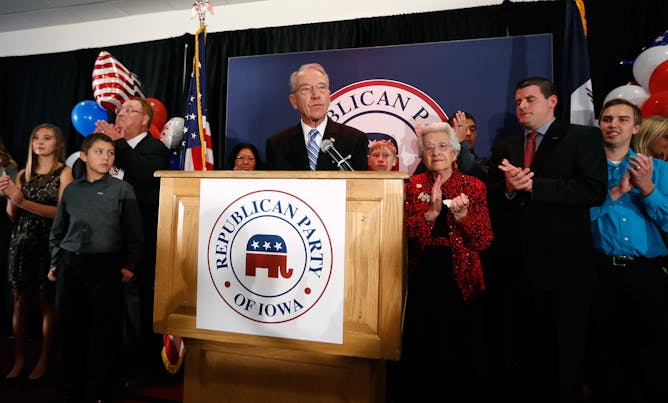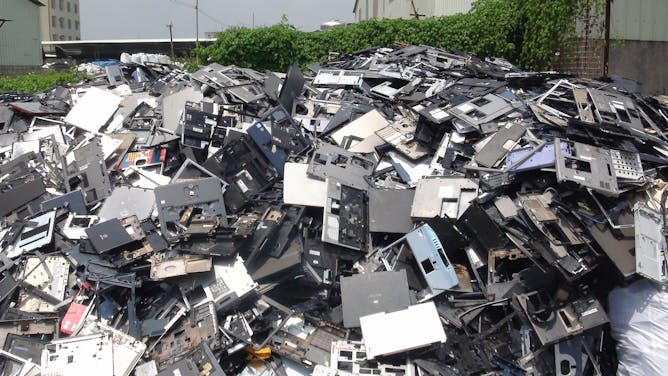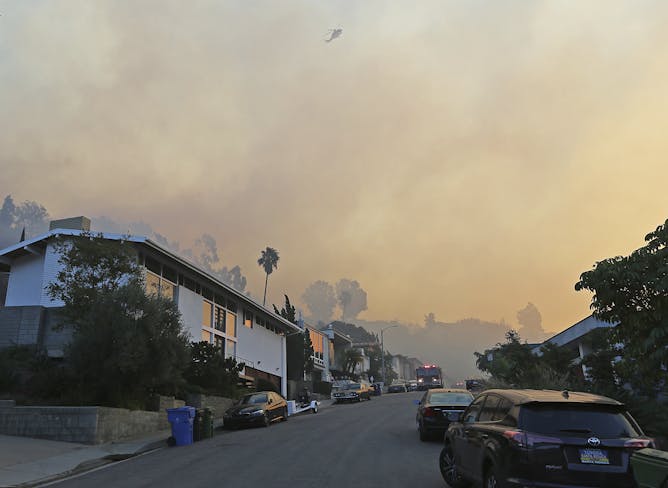Editor's note
|
|
Now that Republicans are confident they’ll pass their tax plan, some lawmakers have begun talking about the need to tackle the deficit that’s sure to grow as a result, painting a bull’s eye on entitlement and other spending programs. To justify the coming cuts, some are trotting out harmful and false narratives about low-income Americans, writes Michele Gilman. The clinical law professor describes the three most pernicious myths about the poor she expects we’ll be hearing a lot more of in coming months.
What happens to your recycling after it’s picked up curbside? Much of it probably is shipped to China, which processes a huge share of U.S. and European scrap. Now, however, China is dramatically slashing imports of what it calls “foreign garbage.” University of California, Berkeley environmental politics professor Kate O’Neill calls Beijing’s move a wake-up call for western nations to clean up their own acts.
And as wildfires continue in California, University of California fire researcher Max Moritz explains how fire-prone areas can learn how to co-exist with wildfires, starting with better land-use planning and building codes.
|
Bryan Keogh
Economics + Business Editor
|

|
|
Top stories
|

Sen. Chuck Grassley recently seemed to suggest some poor people spend all their money on “booze or women or movies.”
AP Photo/Charlie Neibergall
Michele Gilman, University of Baltimore
As the GOP prepares to slash spending to pay for tax cuts, lawmakers have been bringing up claims about the poor that don't stand up to scrutiny.
|

Imported laptop housings, Guiyu, China.
Basel Action Network
Kate O'Neill, University of California, Berkeley
China, which recycles much of the world's waste material, is slashing its scrap imports. This move could force the United States and Europe to boost recycling instead of shipping trash overseas.
|

This fire season has been particularly damaging to urban areas.
AP Photo/Reed Saxon
Max Moritz, University of California, Santa Barbara
With wildfires continuing to rage across southern California, a fire researcher says lowering fire risk means reconsidering where and how we build our communities.
|
|
|
|
|
|
|
|
|
Trending on site
|
-
David Elcott, New York University
A scholar who has interviewed hundreds of Christians across the country explains how he sees religious beliefs and values intertwining with pragmatic concerns.
-
Subhash Kak, Oklahoma State University
Researchers' views depend in part on what technology is (or will be) capable of – and in part on what consciousness actually is.
-
Michael Greenwald, Texas A&M University
The new movie about P.T. Barnum couldn’t come at a better time: It's impossible not to see his ghost in our culture, in our advertisements and in our president.
|
|
|
|
| |
| |
|
|